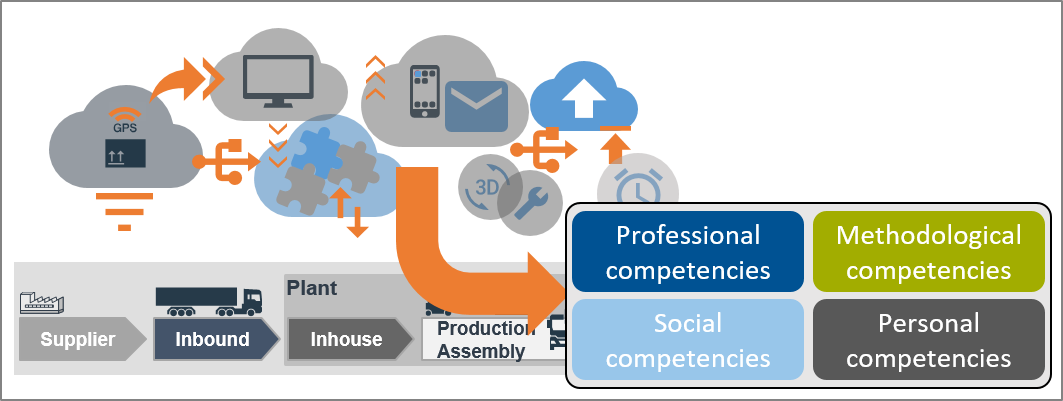Due to the introduction of new technologies, today's logistics processes are changing. Technologies such as Robotics, Augmented Reality, Big Data, Artificial Intelligence and Internet of Things are helping to strengthen the networking of logistics processes and drive the transition to Industry 4.0. Employees and their skills are of great relevance for the successful implementation of new technologies in a company. Despite increasing automation, experts agree that people will continue to play a central role in logistics. Increasing planning tasks for new technologies and human-robot interactions are reasons for this.
These changes cause companies to deal with qualification strategies and measures. But how can companies identify such necessary competency changes? What influences do new technologies have on logistics processes and what changes are there for the necessary competencies and staff requirements?
The research project of the Technical University of Munich and MAN Truck & Bus SE is concerned with answering these questions. The aim is to develop a generally applicable procedure with which qualitative and quantitative employee competencies can be determined. The competencies required for the automotive logistics of the future are systematically derived on the basis of changed logistics processes and taking into account new technologies.
First of all, a competency model is needed that comprehensively maps the relevant capabilities in logistics. A competency model is a catalogue of requirements in which all competencies for service provision and problem solving are documented in a measurable and comprehensible way. In doing so, both past and future competencies along the logistics processes must be taken into account.
In addition to the basic competency model, the logistics processes also need to be considered. These include the areas Inbound, Inhouse, Outbound and Planning. The implementation of new technologies will also result in processes adaptations. The technologies for this are to be identified and sufficiently investigated in order to be able to evaluate their influence on the processes.
The changed logistics processes have an impact on the relevant competencies and the necessary qualifications. Through the analysis of the process changes and the comparison with the competency model, the qualitatively necessary competencies of the employees including the competency levels can be derived.
In addition to the determination of competencies, the concrete, quantitative needs of employees with corresponding competencies are also of interest. The procedure should not only determine the increased and decreased requirements along the logistics processes, but also take into account the influence of different scenarios.
